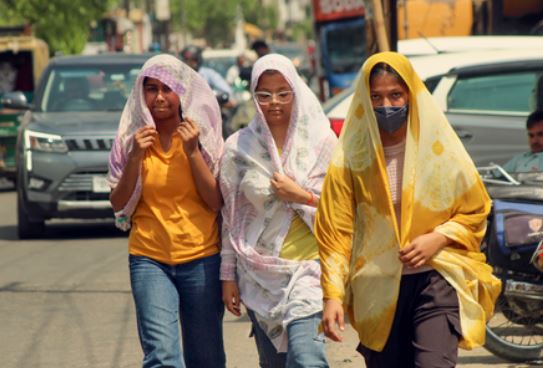Bhubaneswar: Odisha is emerging as one of India’s most climate-stressed states, with 80 per cent of residents reporting they personally experienced severe heat waves, according to a new study released Tuesday.
The study, conducted by the Yale Program on Climate Change Communication and based on survey data collected between 2022 and 2025 from more than 19,000 respondents, created Climate Opinion Maps that track how people across states and districts experience extreme weather and view climate change.
Nationally, a majority of Indians reported facing severe heat waves (71 per cent), agricultural pests and diseases (59 per cent), electricity outages (59 per cent), water pollution (53 per cent), droughts and water shortages (52 per cent), and severe air pollution (51 per cent) in the past 12 months.
Also Read: Climate change real, India to declare NDC by Dec: Environment Minister Yadav at UN COP30
Researchers said the state-level variations show the uneven burden of India’s climate crisis. Along with Odisha, Rajasthan and Haryana also reported 80 per cent exposure to extreme heat, while Kerala (55 per cent) and Tamil Nadu (52 per cent) recorded much lower levels.
Odisha’s vulnerability extends far beyond heat. The state’s exposure to cyclones remains among the highest in India. While 35 per cent of Indians nationwide reported experiencing severe cyclones, the number rises sharply to 64 per cent in Odisha, which was hit hard by Cyclone Dana in October 2024.
The report also highlights Odisha’s growing water stress. More than two-thirds of respondents in the state reported experiencing droughts and water shortages — significantly higher than the national average of 52 per cent.
“As India rapidly develops while facing intensifying extreme weather, understanding how people perceive and experience climate change is essential,” said Dr. Jagadish Thaker, Senior Lecturer at the University of Queensland and one of the lead authors. “These maps can help local and state leaders design climate action plans that reflect people’s lived realities.”
Jennifer Marlon, lead researcher at the Yale Program on Climate Change Communication, said the findings can guide policymakers. “These data about how people across India are experiencing the impacts of climate change can help decision makers better understand public risk perceptions and design climate adaptation, communication and sustainable development policies that meet Indians where they are,” she said.
PNN & Agencies






































